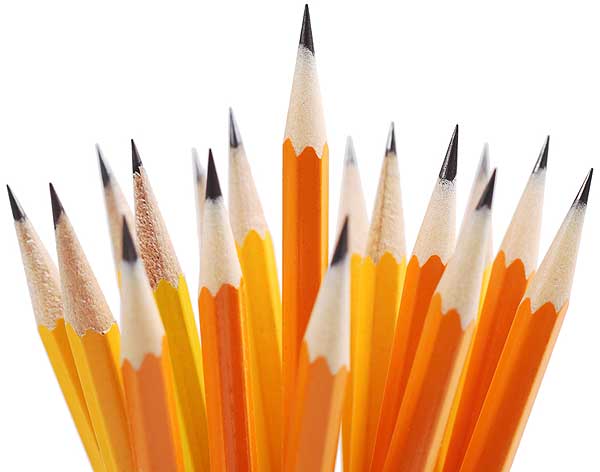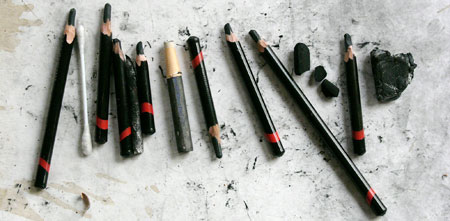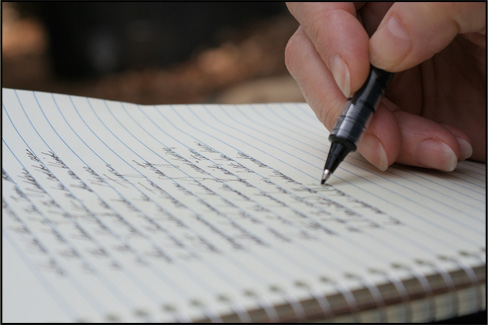
Well, if you had your choice of implement in that technical act of writing on paper (or parchment or vellum, or whiteboard, for that matter,if you prefer)...what would you use?

Fountain pen?
Quill?
#2 pencil?
Magic marker?
Highlighter?
Crayon?
Rolling ink pen?
Ballpoint pen?
Chalk? (with appropriate chalkboard or sidewalk)
Charcoal?
Sharpie?
Would you choose a color? Which one? Or do you prefer black ink? Or blue? Or the comforting grey of graphite?



I used to take notes with a blue medium ballpoint pen - and only a blue medium ballpoint pen. Now, I'm inclined to be more colorful, as I draw my own attention to different categories or subtle points using different inks. My handwriting, however, is not as clear with the steady line of liquid ink. Beyond the deterioration in fine-motor coordination for which I may blame the keyboard, the "fine-point" pen of 7mm is too fluid for my rapid penmanship, and the careful loops and spikes that form letters are blurred.

In The Art of the Handwritten Note: A Guide to Reclaiming Civilization, Margaret Shepherd argues well that a handwritten note highlights its message by the very virtue of the fact that it is handwritten. She claims that the handwritten note has been elevated to an art form, and it in turn upgrades a message because it is less common than email. Most importantly, she reminds her readers that "[i]nk on paper is still the classiest way to express the thoughts that really matter, on the occasions that really count" (p. xiv). I tend to agree, and will extend her "art form" to include the fun that crayons herald, the nuance of charcoal, the importance announced by magic markers, and the sheer elegance of calligraphy.

